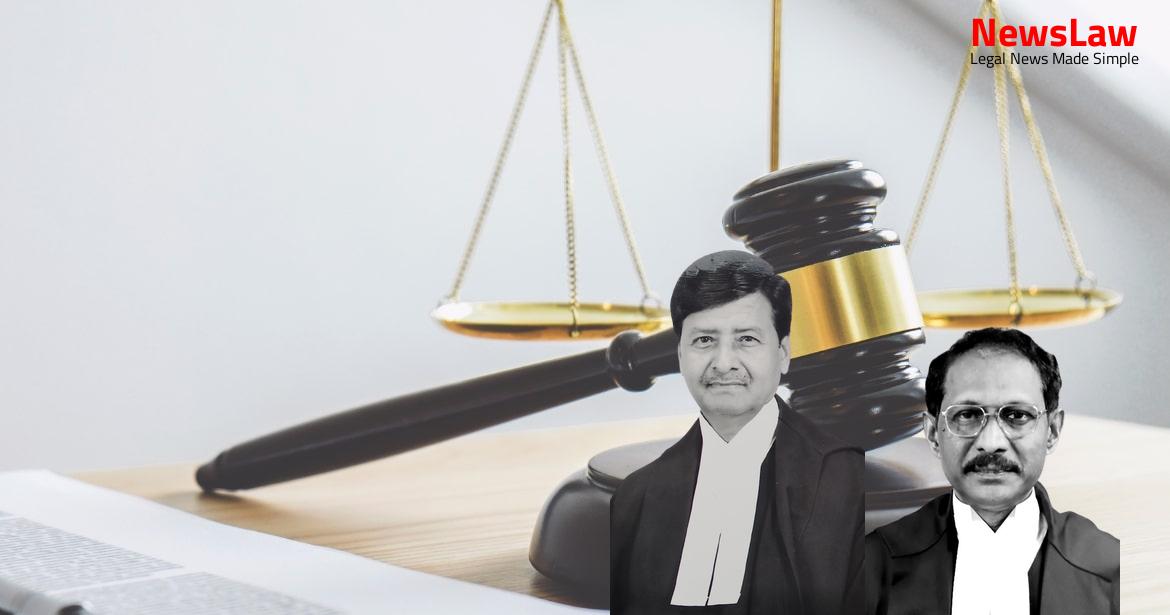The Supreme Court of India has delivered a significant judgement on the allocation and relieving controversy involving the State of Bihar and the First Respondent. The case revolves around the allocation of the First Respondent to Bihar in 2010, but he continued working in Jharkhand until his retirement in 2017. Stay tuned to learn more about the outcome of this legal battle.
Facts
- The first respondent filed a Writ Petition before the High Court of Jharkhand seeking directions to join the State of Bihar based on a notification issued by the Home Department of Bihar.
- The State of Jharkhand attempted to relieve the first respondent after his retirement, but the age of superannuation differed between Bihar and Jharkhand.
- The Writ Petition was allowed by a Single Judge and upheld in a Letters Patent Appeal by a Division Bench.
- The Division Bench directed the State of Bihar to accept the first respondent as its employee on transfer from the State of Jharkhand.
- The first respondent joined the State of Jharkhand on 22 March 2007.
- On 30 July 2010, the first respondent was allocated to the State of Bihar.
- On 11 January 2010, the first respondent requested re-allocation to the State of Bihar.
- Both States agreed to the request, and on 9 February 2007, the first respondent was allocated back to the State of Jharkhand.
- Despite submitting a request to join Bihar, the first respondent was not relieved from Jharkhand.
- The first respondent continued working in Jharkhand until reaching the age of superannuation on 30 April 2017.
Arguments
- The appellant argues that the first respondent was allocated to the State of Bihar in 2010 with mutual approval but continued working in Jharkhand until retirement in 2017.
- The appellant states that no vacancy is available in Bihar for the respondent to be absorbed despite the allocation.
- It is highlighted that the first respondent did not pursue legal remedies when the State of Jharkhand did not relieve him.
- The first respondent did not take steps to join Bihar but continued working in Jharkhand until retirement.
- The appellant argues that the first respondent’s move to Bihar after retirement is to benefit from an enhanced age of retirement.
- It is pointed out that the first respondent did not ensure that Jharkhand relieved him to join Bihar.
- Efforts were made by the first respondent to join Bihar and be relieved by Jharkhand, but he was not relieved by the latter.
Also Read: CRPF Act: Validity of Rule 27 for Compulsory Retirement – Case of Head Constable vs. CRPF
Analysis
- The order of the Government of Jharkhand relieving him on 31 July 2017 after his superannuation is deemed inconsequential.
- The learned Single Judge of the High Court and Division Bench in appeal erred in granting relief to the respondent.
- The blame for not pursuing available remedies to ensure issuance of a relieving order by the State of Jharkhand lies with the first respondent.
- Directing absorption by the State of Bihar after superannuation in Jharkhand is deemed inappropriate, especially after working there for seven years.
- The State of Bihar has stated they have no vacancies, and the respondent failed to enforce rights under the order dated 6 September 2010.
- Despite being informed by Bihar of the inability to accept his services on 12 October 2015, the respondent did not take any steps.
Also Read: DAMEPL vs. DMRC: Curative Petition and Arbitral Award Restoration
Decision
- Pending application(s) to be disposed of
- Appeal allowed
- Impugned judgment and order of the High Court dated 5 November 2018 set aside
- No order as to costs
Case Title: THE STATE OF BIHAR Vs. DR. CHAITRAYA KUMAR SINGH
Case Number: C.A. No.-005709-005709 / 2019



